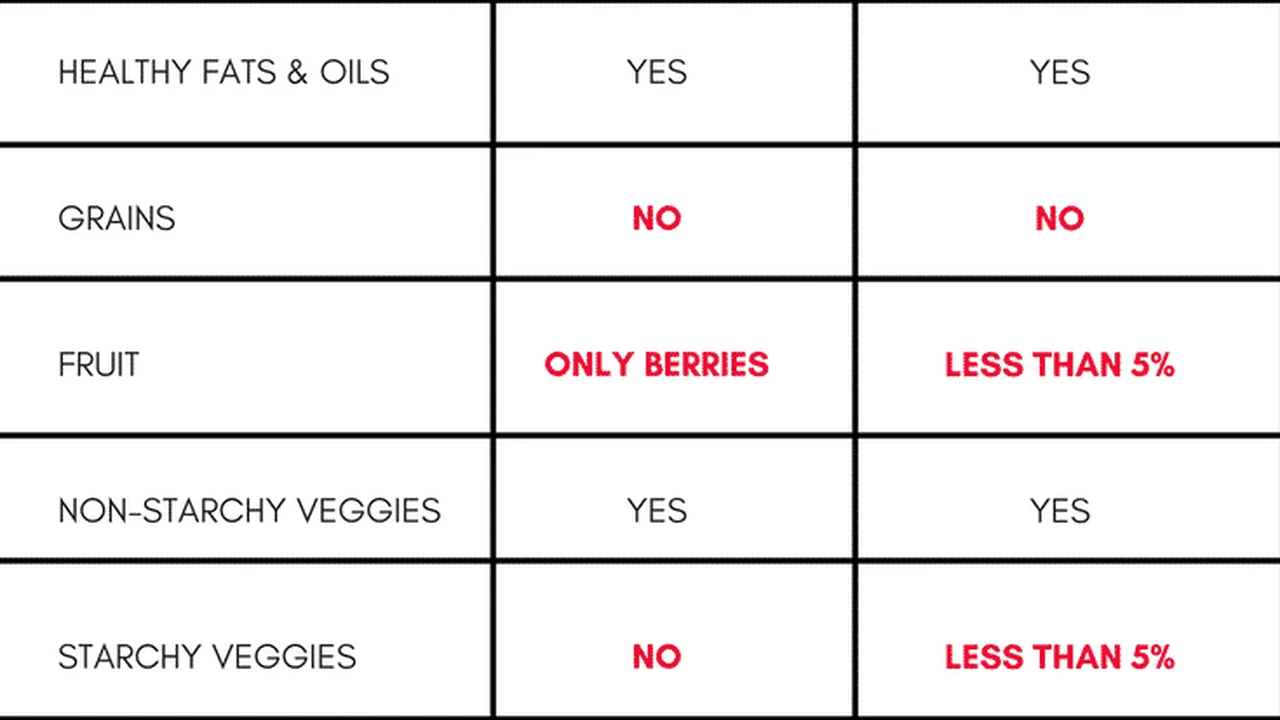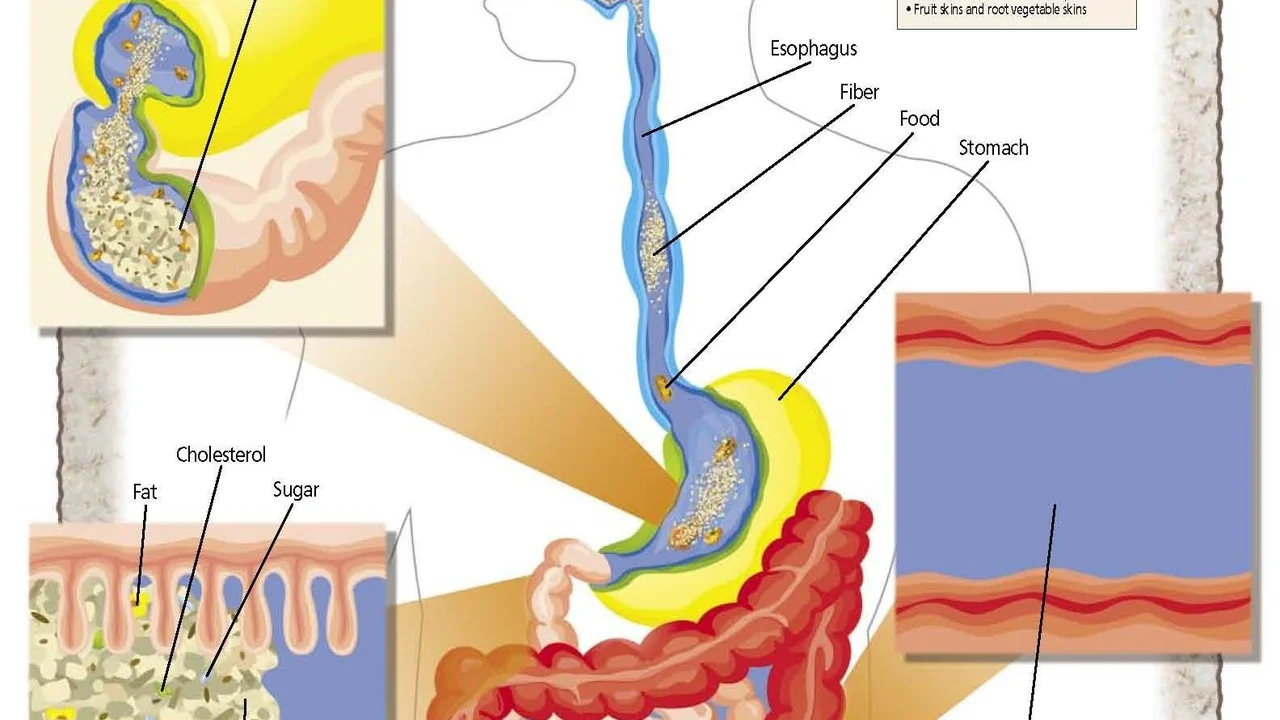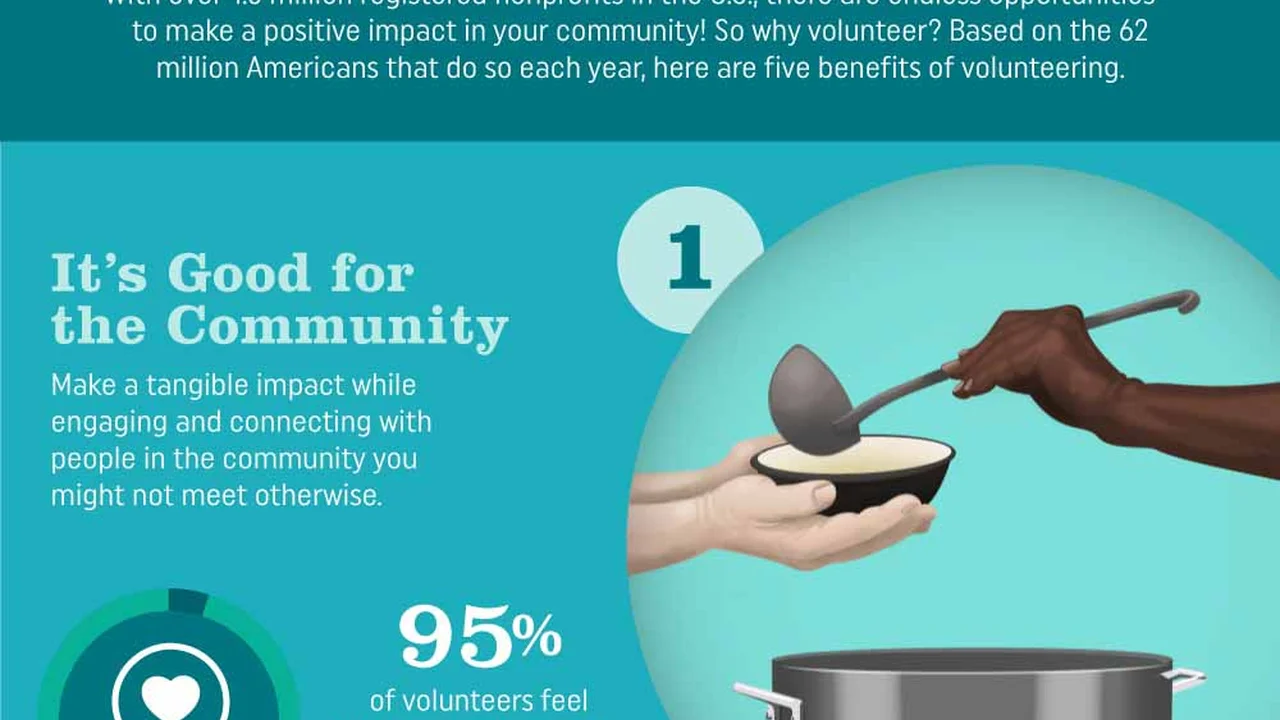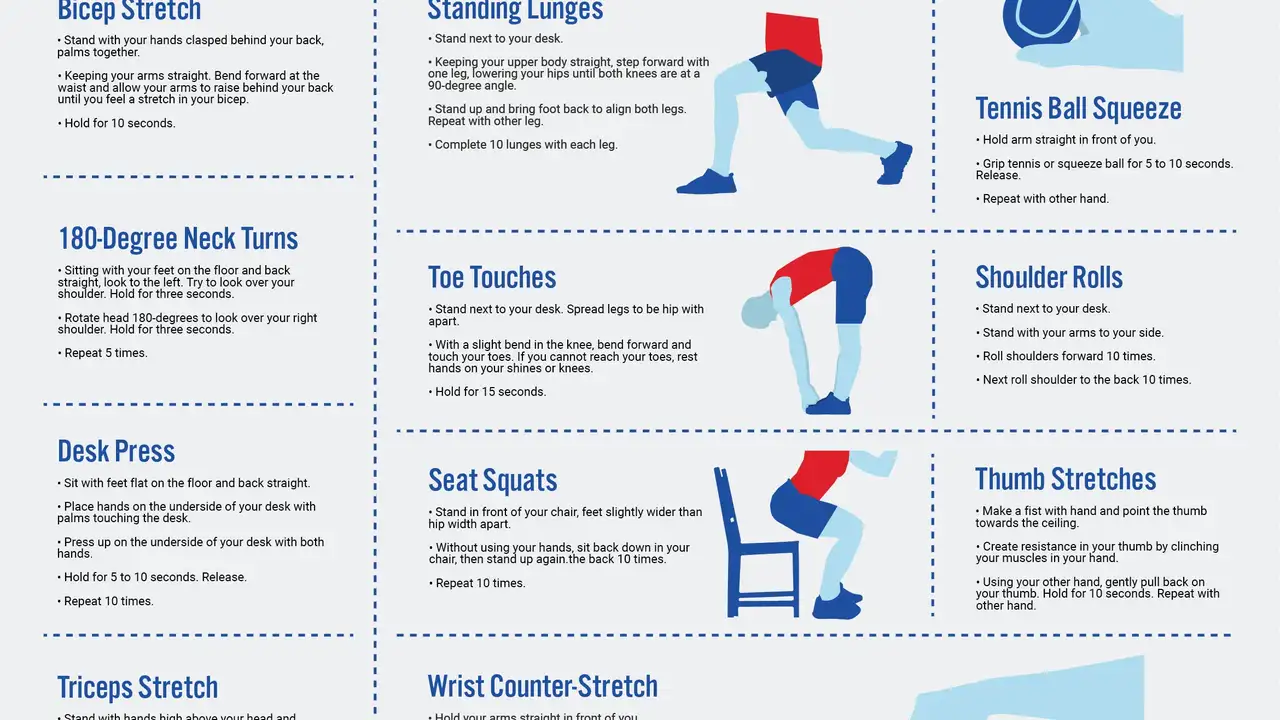5 Habits to Improve Your Mental Health Every Day
Debunking Common Lifestyle Myths Separating Fact from Fiction

Understanding the Prevalence of Lifestyle Myths and Misconceptions
In today's information age, we're bombarded with advice and opinions on how to live a healthy and fulfilling life. From diet fads to workout trends to productivity hacks, it can be challenging to separate fact from fiction. Many popular lifestyle myths are perpetuated through social media, word-of-mouth, and even some media outlets. These misconceptions can lead to confusion, frustration, and even harm if followed blindly. It's crucial to develop a critical mindset and question the information we encounter, especially when it comes to our health and well-being.
Diet and Nutrition Myths: Exploring Common Food and Eating Misconceptions
The world of diet and nutrition is rife with myths. Let's debunk some of the most prevalent:
Myth 1: Carbs are the Enemy: The Truth About Carbohydrates and Weight Management
This is a classic! Carbs aren't inherently evil. They're a primary source of energy. The problem isn't carbs themselves, but the *type* of carbs and the *quantity* you consume. Refined carbs like white bread, sugary drinks, and processed foods offer little nutritional value and can lead to rapid blood sugar spikes and crashes, contributing to weight gain and other health issues. Focus on complex carbs like whole grains, fruits, and vegetables, which provide fiber, vitamins, and minerals.
Myth 2: Fat Makes You Fat: Understanding Healthy Fats and Their Role in the Body
Another persistent myth! Just like carbs, not all fats are created equal. Healthy fats, like those found in avocados, nuts, seeds, and olive oil, are essential for hormone production, brain function, and nutrient absorption. Avoid trans fats, which are often found in processed foods and can increase your risk of heart disease. Saturated fats, found in red meat and dairy products, should be consumed in moderation. The key is balance and choosing the right types of fats.
Myth 3: Detox Diets are Necessary: Exploring the Body's Natural Detoxification Processes
Your body is a fantastic detoxifying machine! Your liver and kidneys work tirelessly to filter out toxins. "Detox" diets often involve restrictive eating and potentially harmful practices. Instead of relying on fad diets, support your body's natural detoxification processes by drinking plenty of water, eating a balanced diet rich in fruits and vegetables, and getting regular exercise.
Myth 4: Skipping Meals Helps You Lose Weight: The Impact of Meal Frequency on Metabolism
Skipping meals can actually *hinder* weight loss. When you skip meals, your body goes into starvation mode, slowing down your metabolism to conserve energy. This can lead to increased cravings and overeating later on. Eating regular, balanced meals helps keep your blood sugar levels stable and prevents you from feeling overly hungry.
Fitness and Exercise Myths: Separating Fact from Fiction in the Gym and Beyond
The fitness industry is also full of misleading information:
Myth 1: More Sweat Equals More Results: Understanding the Relationship Between Perspiration and Calorie Burn
Sweating is simply your body's way of cooling down. It's not a direct indicator of calorie burn or workout effectiveness. You can burn a significant number of calories without sweating profusely, and vice versa. Focus on the intensity and duration of your workouts, rather than the amount you sweat.
Myth 2: Cardio is the Best Way to Lose Weight: The Importance of Strength Training for Weight Loss
Cardio is great for cardiovascular health, but strength training is crucial for building muscle mass. Muscle burns more calories than fat, even at rest. So, incorporating strength training into your routine can help you boost your metabolism and lose weight more effectively. A combination of cardio and strength training is the ideal approach.
Myth 3: You Can Target Fat Loss: Understanding Spot Reduction and Body Composition
Unfortunately, you can't target fat loss in specific areas of your body. When you lose weight, you lose it from all over, not just from your belly or thighs. Focus on overall fat loss through a healthy diet and exercise, and your body will naturally slim down in all areas.
Myth 4: No Pain, No Gain: Knowing Your Limits and Preventing Injuries
While some discomfort is normal during exercise, sharp or persistent pain is a sign that something is wrong. Pushing yourself too hard can lead to injuries that set you back. Listen to your body and don't be afraid to modify your workouts or take rest days when needed.
Productivity and Time Management Myths: Unveiling False Beliefs About Efficiency and Effectiveness
Let's tackle some productivity myths:
Myth 1: Multitasking Makes You More Efficient: The Cognitive Costs of Task Switching
Multitasking is often seen as a valuable skill, but research shows that it actually *reduces* productivity. When you switch between tasks, your brain has to re-focus, which takes time and energy. This can lead to errors and decreased efficiency. Focus on single-tasking, dedicating your full attention to one task at a time, for better results.
Myth 2: You Need to Be Busy to Be Productive: The Importance of Rest and Downtime for Creativity and Focus
Being constantly busy doesn't necessarily mean you're being productive. In fact, overworking can lead to burnout and decreased creativity. Rest and downtime are essential for recharging your batteries and allowing your brain to process information. Schedule regular breaks and prioritize activities that help you relax and de-stress.
Myth 3: Procrastination is Always Bad: Understanding the Benefits of Strategic Delay
While chronic procrastination can be detrimental, strategic delay can actually be beneficial. Sometimes, putting off a task allows you to gather more information, develop a better strategy, or simply wait for the right moment. The key is to be mindful and intentional about your procrastination, rather than simply avoiding work.
Myth 4: You Need to Follow a Strict Schedule: The Value of Flexibility and Adaptability
Having a schedule can be helpful, but it's important to be flexible and adaptable. Life is unpredictable, and things don't always go according to plan. Don't be afraid to adjust your schedule as needed and prioritize tasks based on their urgency and importance. Rigidity can lead to stress and frustration.
Relationships and Social Myths: Examining Common Beliefs About Love, Friendship, and Connection
Relationships are another area where myths abound:
Myth 1: Opposites Attract: The Role of Shared Values and Interests in Long-Term Compatibility
While initial attraction can be based on differences, long-term compatibility is often based on shared values and interests. Having common ground makes it easier to connect, communicate, and navigate challenges together. Look for someone who shares your core beliefs and enjoys spending time doing the things you love.
Myth 2: You Need to Find Your Soulmate: The Pressure of Finding the "One" and the Importance of Building a Strong Relationship
The idea of finding your soulmate can put unnecessary pressure on relationships. Instead of searching for the "perfect" person, focus on building a strong and healthy relationship with someone you care about. Relationships require effort, communication, and compromise. There's no such thing as a perfect relationship, but you can create a fulfilling and lasting partnership with the right person.
Myth 3: Jealousy is a Sign of Love: Understanding the Difference Between Healthy Affection and Possessiveness
Jealousy is often portrayed as a sign of love, but it's actually a sign of insecurity and possessiveness. Healthy affection is based on trust, respect, and open communication. If you're feeling jealous, it's important to address the underlying issues and work on building a stronger foundation of trust in your relationship.
Myth 4: You Can Change Your Partner: Accepting People for Who They Are and the Importance of Self-Improvement
Trying to change your partner is a recipe for conflict and resentment. Accept people for who they are, flaws and all. Focus on your own self-improvement and encourage your partner to do the same, but don't try to mold them into someone they're not. Healthy relationships are based on mutual acceptance and respect.
Product Recommendations for Debunking Lifestyle Myths
Here are some products that can help you separate fact from fiction and live a healthier, more productive life:
For Debunking Diet and Nutrition Myths: Nutribullet Blender Combo
Description: A powerful blender that allows you to easily create healthy smoothies and shakes using whole foods. This helps you incorporate more fruits, vegetables, and healthy fats into your diet, debunking the myth that healthy eating is difficult or time-consuming. Use Case: Quickly blend a nutritious breakfast smoothie with spinach, berries, banana, protein powder, and almond milk. Perfect for busy mornings or post-workout recovery. Comparison: Compared to a standard blender, the Nutribullet is designed for nutrient extraction, breaking down cell walls to release vitamins and minerals. It's also more compact and easier to clean than a large blender. Price: Approximately $100-$150
For Debunking Fitness and Exercise Myths: Fitbit Charge 5
Description: A fitness tracker that monitors your heart rate, activity levels, sleep patterns, and stress levels. This provides valuable data to help you understand your body and optimize your workouts, debunking the myth that more sweat equals more results. Use Case: Track your heart rate zones during different types of workouts to ensure you're working at the right intensity. Monitor your sleep quality to ensure you're getting adequate rest for recovery. Comparison: Compared to other fitness trackers, the Fitbit Charge 5 offers advanced features like ECG monitoring and stress management tools. It's also comfortable to wear and has a long battery life. Price: Approximately $150-$200
For Debunking Productivity and Time Management Myths: Freedom App
Description: An app that blocks distracting websites and apps, helping you focus on your work and reduce multitasking. This helps you debunk the myth that multitasking makes you more efficient. Use Case: Schedule blocks of time where distracting websites and apps are blocked, allowing you to focus on writing a report, studying for an exam, or completing a project without interruptions. Comparison: Compared to other website blockers, Freedom offers a simple and intuitive interface and allows you to create custom blocklists. It's also available for multiple devices. Price: Subscription-based, starting at around $7 per month.
For Debunking Relationships and Social Myths: The Gottman Relationship Checkup
Description: An online assessment based on decades of research by the Gottman Institute, designed to provide insights into your relationship strengths and weaknesses. This helps you debunk common relationship myths and build a stronger, healthier partnership. Use Case: Take the assessment individually or with your partner to identify areas where you excel and areas that need improvement. Use the results to guide conversations and develop strategies for strengthening your relationship. Comparison: Unlike general relationship advice, the Gottman Relationship Checkup is based on scientific research and provides personalized recommendations. Price: Approximately $149
Developing a Critical Mindset: Questioning Information and Seeking Evidence-Based Advice
The most important tool for debunking lifestyle myths is a critical mindset. Question the information you encounter, especially if it sounds too good to be true. Look for evidence-based advice from reputable sources, such as scientific studies, expert opinions, and trusted organizations. Be wary of anecdotal evidence and testimonials, as they may not be representative of the general population.
Navigating the Information Landscape: Identifying Credible Sources and Avoiding Misleading Content
In today's information landscape, it's crucial to be able to identify credible sources and avoid misleading content. Look for websites and organizations that are transparent about their funding and biases. Check the author's credentials and expertise. Be wary of websites that promote conspiracy theories or unproven health claims. Cross-reference information from multiple sources to ensure accuracy.
Embracing a Personalized Approach: Finding What Works Best for You and Your Unique Circumstances
Ultimately, the best lifestyle choices are those that work best for you and your unique circumstances. What works for one person may not work for another. Experiment with different strategies and find what helps you feel your best. Don't be afraid to challenge conventional wisdom and create your own path to a healthier, more fulfilling life. Remember that progress is a journey, not a destination.
:max_bytes(150000):strip_icc()/277019-baked-pork-chops-with-cream-of-mushroom-soup-DDMFS-beauty-4x3-BG-7505-5762b731cf30447d9cbbbbbf387beafa.jpg)






